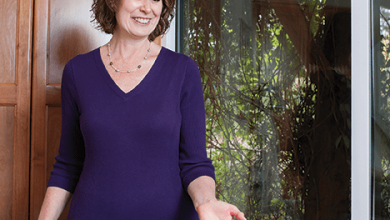Helping Kids (& Adults) Learn
I once attended a fair with a friend and his five year old daughter. As soon as we entered the grounds he bought her the first sweet, junk food that caught her eye. “Do you realize what you’ve just done?” I inquire as she happily munched away. “Give her five minutes and you won’t understand why she’s misbehaving. Give her fifteen more and she’ll be comatose.” Sure enough twenty minutes later we were headed home with his child, sound asleep, draped over his shoulder after a melt down. “How did you know?” He asked eyes wide. “Look what you feed her!” I replied. Many parents see little or no connection between their child’s diet, their behavior and their moods, all of which impact their ability to learn.
The typical breakfast for kids these days is little better than junk food at a fair, loaded with sugar, void of protein and nutrients. Much of the cereals and breakfast bars are “enriched” with vitamins and minerals. But synthetic vitamins are difficult to assimilate, as opposed to nutrients obtained from real food. “Besides,” a presenting doctor at a seminar I attended quipped, “If you were held up at gun point, $1,000 taken from you and $1 returned, how enriched would you feel?” Many packaged products have most of the nutrients stripped during processing. A few synthetic vitamins are added for the pretense of nutritional value.
When I’ve given talks at schools, I could usually look around the room and tell what kids had for breakfast. The ones bouncing off the walls in the morning and falling asleep in the afternoon were the ones not getting protein and nutrients (vegetables) for breakfast.
Grains and sugar for breakfast give people a peak and then a crash of energy. This sets up a roller coaster of energy, moods, attention span, and mental acuity throughout the day. If you watch the extras in the movie Super Size Me, there’s a school where parents took charge of the cafeteria and the gym classes. They provided healthy food and 30 minutes a day of exercise for every child, with rock climbing walls and gym equipment, things the kids loved. In every subject the scores went up a whole grade point. The most dramatic improvements were those in math and science, classes most mentally demanding.
Even supposedly healthy breakfasts typically cause peaks and crashes in energy. Granola with alternative milks and alternative sweeteners, yogurt and fruit, health food energy bars, fruit smoothies, even fruit and vegetable juices don’t have what it takes to keep people going throughout the day. That said, there are always exceptions; people with the metabolism to digest anything. But this often means borrowing from future reserves in later life.
Children need nutrients to grow and enable the cognitive part of the brain to develop. Without the appropriate nutrients the predominant part of the brain that develops is the one that registers animal instincts: immediate gratification.
Trace minerals are essential for relaxation. Without the assimilation of the right combination of trace minerals calcium can’t enter the muscles to relax them. They get so tightly wound that the body resorts to muscle spasms in an attempt to pump nutrients into the tissues. Calcium is needed to relax us emotionally as well. Without the right source and combination of trace minerals, people can emotionally get wound tighter and tighter, and get angrier and angrier until they blow. It doesn’t matter what anyone says or does, nothing registers. It’s the body’s emotional muscle spasm. Something internal that has to be resolved. In children it’s called a temper tantrum. In adults it can become spousal abuse, road rage, or assault. Though herbs or nutritional supplements are usually necessary to correct these imbalances, a good diet is also essential to halt these tendencies.
Children need protein three times a day. Protein feeds the brain. Everything we eat turns to glucose (a type of sugar) in the body except protein. The brain can use either glucose or protein to function. It functions best with both. Protein (and vegetables) help prevent peaks and crashes in blood sugar. Protein is also essential to build healthy tissues. As fast as kids grow, you can see why protein three times per day is important.
Children need good fats. The brain is made of fat. We need good fats to feed the brain. Fat also slows down the assimilation of glucose in the body helping to prevent the peaks and crashes in energy. It prolongs energy from one meal to the next. The low fat, high carb diet is one of the components contributing to childhood obesity.
“I give my kids vitamins everyday.” Many parents inform me. Supplements are supplemental. They don’t take the place of real food. In the 1920’s Dr. Royal Lee explained that synthetic vitamins do more harm than good. There are now studies that validate his claim. By synthetically extracting a component of food, to measure the exact amount, you leave behind what helps us assimilate it and what enables us to get rid of what we don’t need. Food works synergistically. If you remove a piece of it you don’t get the same positive results. An example is fruit or vegetable juices that most people consider healthy. Just by removing the pulp, you remove the food’s ability to slow down the assimilation of glucose. Juice dumps a large amount of sugar in your body and contribute to peaks and crashes of mood, energy and mental acuity. If taking vitamins, make sure they are whole food. Which means the label doesn’t break down exactly how many mg of each vitamin is in it. But even whole food vitamins don’t take the place of a good diet.
Corn and wheat are in many breakfast foods. They’ve been major cash crops so long that even before the alterations of GMO they were very different from the original grains. They can cause insulin insensitivity. That means they interfere with the transport of glucose from the blood to the tissues where it’s used for fuel.
I remember having a heck of a time in high school and college keeping my eyes open in classes that weren’t my favorite subjects. I never suspected, in high school, that it was my Mom’s wonderful home cooked breakfasts with toast and jam, waffles, pancakes, whole grain hot cereals, all served with a glass of fruit juice, that was the problem. Once I understood the food connection I was amazed with the mental clarity I could rely upon every day simply by eating protein and vegetables for breakfast.
So what to feed kids for breakfast? First of all, get over the idea of breakfast foods. Many countries eat the same things for breakfast that they do for lunch and dinner. If you would eat the same thing for dinner that you ate for breakfast and consider it a healthy meal then you’re on the right track. Organic eggs, free range sausage, steak and eggs, beans, lentils are all good sources of protein. Vegetables of many colors and textures mean more vitamins and minerals and can be added to omelettes or egg scrambles, with yams or sweet potatoes, onions, garlic, peppers, zucchini, spinach, summer squash. Sausage, meat, poultry, fish, beans and lentils are all good sources of protein for breakfast. Left over dinner is a great breakfast, sometimes scrambled in with an egg.
More physically active kids need more starches to burn off during the day. Wheat free or gluten free breads are more difficult to digest than whole grains, but in cases of a strong digestive system and high metabolism these can work. A room temperature vegetable smoothie is a quick way to get vegetables in. Even people who don’t like vegetables usually like this combination: a carrot, celery stalk, 1/3 of a cucumber, piece of beet, parsley or cilantro, and water with a piece of a Granny Smith apple and a 1/4 lemon with the peel. Or try a tomato and some cultured vegetables blended with the vegetables, which tastes like a V-8.
Behavior problems just like physical problems in children usually stem from lack of nutrients, either from not eating the right foods or digestive issues preventing the assimilation food. If kids love sweets and hate vegetables, refusing to eat what is healthy, Candida is usually a problem and needs to be addressed with prescribed remedies. Growing pains, ADD, ADHD, even more serious problems like Autism can be turned around by restoring gut flora, addressing digestion issues and incorporating a good diet.
Every child deserves the best start we can give them. A good diet prepares them for a healthy day and a healthy life.
Health & Happiness,
Nancy Burton, L.Ac.


